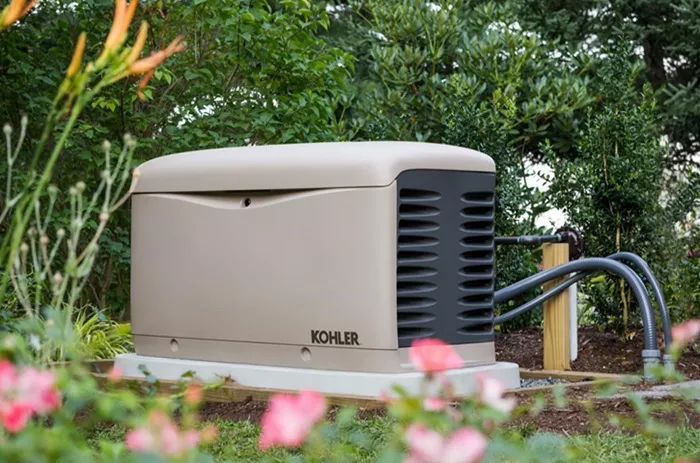A reliable home generator is essential for keeping your household running during power outages. Whether you live in an area prone to storms, grid failures, or frequent blackouts, choosing the right generator ensures your lights stay on, your food stays fresh, and critical appliances keep working. In this guide, we’ll explore the different types of generators, key features to consider, and expert recommendations to help you find the best generator for your home.
Types of Home Generators
Portable Generators
Portable generators are the most affordable and versatile option. They run on gasoline, propane, or diesel and can power essential appliances like refrigerators, lights, and small electronics.
Pros
- Lower upfront cost
- Easy to move and store
- Can be used for camping or outdoor events
Cons
- Manual startup required
- Limited power output (usually 3,000–8,500 watts)
- Requires fuel storage and refilling
Best for: Small homes, emergency backup, or temporary power needs.
Inverter Generators
Inverter generators are a type of portable generator that produces clean, stable power suitable for sensitive electronics like laptops and medical devices.
Pros
- Quiet operation
- Fuel-efficient
- Safe for electronics
Cons
- Higher cost than conventional portable generators
- Lower power output (typically 1,000–4,500 watts)
Best for: Powering sensitive devices, RVs, or as a supplemental backup.
Standby Generators
Standby generators are permanently installed outside your home and automatically turn on when the power goes out. They run on natural gas or propane and can power an entire house.
Pros
- Automatic operation
- High power output (7,500–20,000 watts or more)
- No refueling needed (if connected to a gas line)
Cons
- Expensive installation
- Requires professional maintenance
Best for: Whole-house backup power in areas with frequent outages.
Solar Generators
Solar generators use battery storage and solar panels to provide clean, renewable energy. They are silent and emission-free but depend on sunlight for recharging.
Pros
- No fuel costs
- Environmentally friendly
- Low maintenance
Cons
- Limited power output
- Slow recharge time in cloudy weather
Best for: Off-grid living, eco-conscious homeowners, or supplemental backup.
Key Features to Consider When Choosing a Generator
Power Output (Wattage)
The most critical factor is determining how much power you need. Calculate your home’s wattage requirements by adding up the starting and running watts of essential appliances:
Starting Watts: Extra power needed when an appliance first turns on (e.g., refrigerators, air conditioners).
Running Watts: Continuous power needed to keep appliances running.
Fuel Type
Gasoline: Readily available but has a short shelf life.
Propane: Stores longer and burns cleaner but requires tanks.
Diesel: More efficient but noisy and expensive.
Natural Gas: Convenient if you have a gas line but requires professional installation.
Runtime
A good generator should run for at least 8–12 hours on a full tank. Inverter generators are more fuel-efficient, while standby generators can run indefinitely if connected to a gas line.
Noise Level
Portable generators can be loud (60–75 dB), while inverter and solar models are quieter (50–60 dB). Standby generators are also relatively quiet but produce more noise than solar options.
Transfer Switch (For Standby Generators)
A transfer switch ensures safe connection to your home’s electrical system. Automatic transfer switches (ATS) are best for standby generators, while manual switches work for portable models.
Safety Features
- Automatic shutoff for low oil or overheating
- GFCI outlets to prevent electric shocks
- CO detection to avoid carbon monoxide poisoning
Top Generator Recommendations for Homes
Best Portable Generator: Honda EU2200i
Power: 2,200 watts
Fuel: Gasoline
Runtime: 8.1 hours at 25% load
Noise Level: 48–57 dB
Pros: Extremely reliable, quiet, and lightweight
Best Inverter Generator: Champion 3400-Watt Dual Fuel
Power: 3,400 watts
Fuel: Gasoline or propane
Runtime: 7.5 hours (gas) / 14.5 hours (propane)
Noise Level: 59 dB
Pros: Dual fuel option, quiet, and portable
Best Standby Generator: Generac 22kW Guardian
Power: 22,000 watts
Fuel: Natural gas or propane
Runtime: Unlimited (with fuel supply)
Pros: Whole-house power, automatic operation
Best Solar Generator: Bluetti AC300 + B300
Power: 3,000 watts (expandable)
Battery: 3,072Wh (expandable to 12,288Wh)
Recharge: Solar, AC, or car charger
Pros: Silent, no fuel needed, eco-friendly
Maintenance Tips for Longevity
- Change oil regularly (every 50–100 hours of use).
- Store fuel properly (use stabilizers for gasoline).
- Test monthly to ensure it works when needed.
- Keep it clean to prevent dust and debris buildup.
Conclusion
Choosing the best generator for your home depends on your power needs, budget, and fuel preferences. Portable generators are great for emergencies, while standby generators offer seamless, whole-house backup. Solar generators provide a green alternative but may need supplemental power.
By considering wattage, fuel type, runtime, and safety features, you can find a reliable generator that keeps your home powered during outages. Invest in a quality model, perform regular maintenance, and enjoy peace of mind knowing you’re prepared for any blackout.

